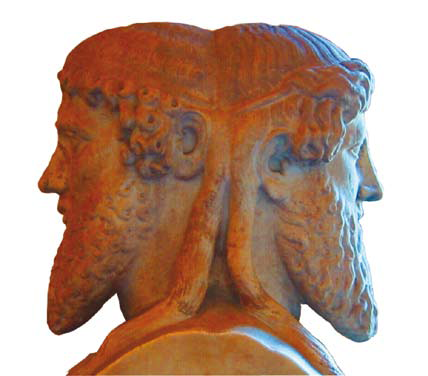Tying the start of a year to the season of spring makes perfect sense in agrarian cultures. The Romans started their year in spring for a long time, seeing March 25th as a logical "New Year's Day" because the days were clearly getting longer after that date.
The reason why they (and we) use the 25th of certain months instead of the 21st (when astronomically significant events like solstices and equinoxes take place), is because 4 days was the length of time it took for an observer without instruments to be certain that the seasons were, in fact, changing.
When Julius Caesar decided to reform the calendar in 45 BCE (adding a "leap day) each four years), he chose to start his new version on January 1. Named for Janus, the duo-visaged god of transitions and beginnings, it made sense to start a significant change at the start of his month. Friends would create good omens for the start of the year by giving each other token gifts of figs and honey, and wishing each other well for the coming year.
In the Middle Ages, the Church preferred to use a date of greater religious significance (Christian religion, that is, rather than Roman). March 25th (as The Annunciation) was sometimes used, and December 25th as Christmas, and March 1st (for convenience, since it could start a month and a year).
When Pope Gregory XIII reformed the calendar again,* he chose January 1st to be the official start of the year. He didn't cause the whole world to follow his lead. Most European countries had already settled on the "Julian solution" for the first day of the year.
Happy New Year.
*Technically, when he carried out the reforms planned by Pope Paul III.

No comments:
Post a Comment
Note: Only a member of this blog may post a comment.